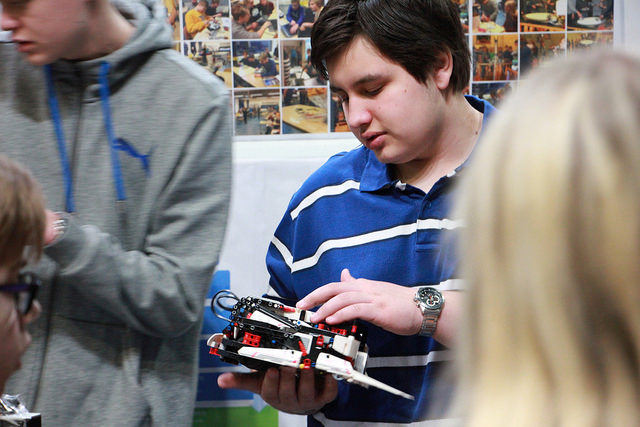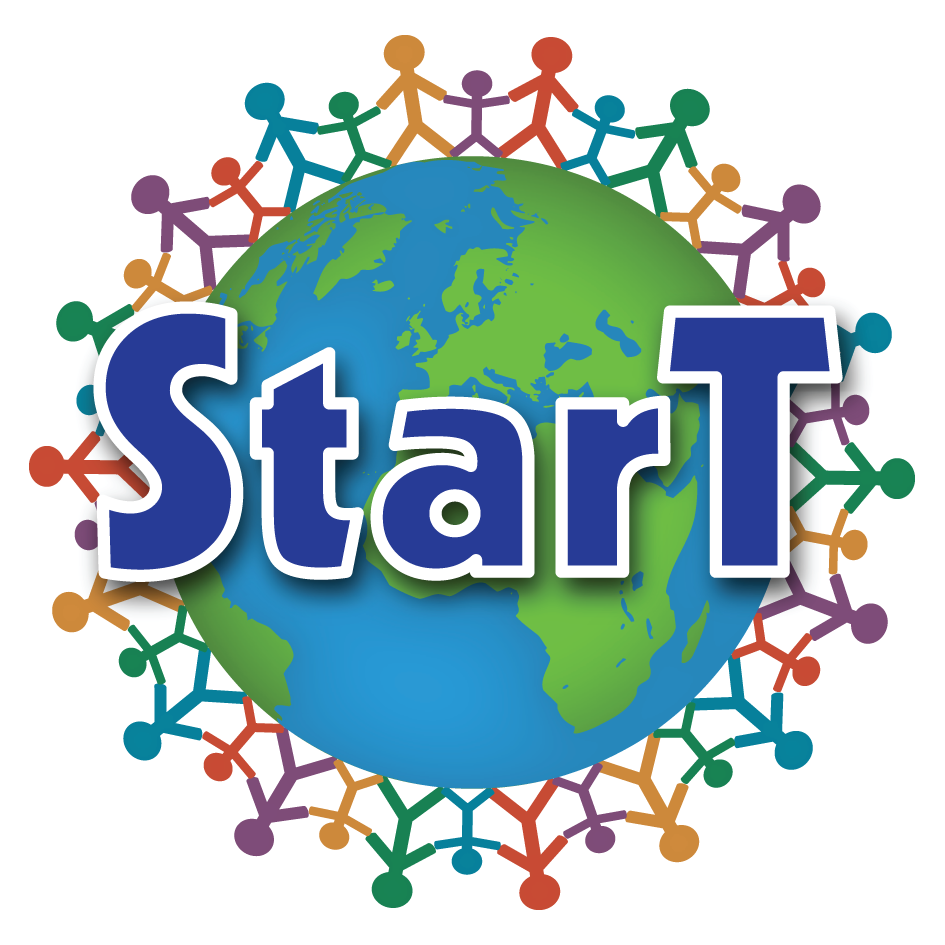StarT Day
Inquiry-based and cooperative learning and it’s presentation is the core of StarT Day. This educational day can involve the whole class or school as well as parents and partners of StarT. Everyone is welcome to share the joy of learning in an interesting and dynamic learning environment. In the center of StarT Day projects is to share one’s work to others and successes in a evaluative and constructive manner.
StarT day is about more non-formal, student-centered and inquiry-based science learning to develop learners’ understanding of sciences. It aims to excite and work together students and others such as parents and partners to share their thoughts in an educational environment.
Main features of StarT day
A StarT Day can be organized very flexibly and freely. It usually consists of three to four hour long event where children and their parents get together and work together in groups involving various workshops, demonstrations and presentations. For example it could mimic a scientific conference where students gather to present their findings in demonstrations and workshops. A StarT Day can also be an hour or two long science event that is easily integrated as part of a school day, course, parents’ meeting or other school event.
As part of inquiry-based learning and making school science feel more relevant, it can be encouraging to build partnerships with employers that can send employees with a scientific background to visit schools to present their work as well as employment opportunities.
StarT Day can involve:
- Projects in workshops, clubs and visiting places of interest to gain further understanding of a subject
- Student-centered cooperation, creative problem-solving
- Can be easily integrated to a course as student assessment or to PA meetings or other events.
- It’s your unique vision of a learning environment and with clear objectives and constructive activities you can envision success in your students.
Examples of StarT day
StarT day for the whole school
In Kulosaari high school students tackled environmental, economic and societal problems in a “Science Expo” in Finnish, with presentations that were informative, inquisitive and scientific. Perfect practice for future scientists!
In Amman and Tampere a similar concept of a scientific seminar was carried out. In the seminar, students presented their findings with demonstrations and workshops including participation of parents, and other adults – inspiring conversation on science.
“The Project also aims to develop the children and youths’ capacities of scientific inquiry, and problem solving skills to accomplish unique and original scientific projects which inspire them to become innovative scientists in future”
–Amman, Jordania 2018 “Innovation for Creativity Development Association”
“The exhibition was organised like a scientific conference where the students stood next to their research papers, ready to answer any questions.”
-Tampereen lyseo (high school) about StarT-event: “Celebrating student projects” 2018.
Examples of StarT Days
In Putaanvirta elementary school, Finland students got in touch with their native locality, Pihtipudas, including trips to nature preserves, cultural and municipal centers and local employers. Together in workshops and visits students cooperatively established changes to their home including nature trails, informative brochures and videos about Pihtipudas. Students involved themselves to a project of interest and conversed with local actors such as historians, entrepreneurs. They found most compelling the action-based learning, cooperation and independent planning as well as peer-to-peer evaluation.
In Tampere lyseo high school every student produced a scientific essay about their subject of research and presented their findings in a scientific poster. The students could pick the topic freely, but they needed to emulate scientific writing style and composition. Students gained insight to work of researchers and about the scientific method. This project mirrored IB high school program but can be utilized in every high school curricula.
ScienceTutor activity in Etu-Töölö high school involved students into the roles of tutors and assistant teachers throughout the school year. It gave them opportunities to develop their own learning by teaching and acknowledging common learning difficulties.
“They learn to withstand the project’s uncertainty in development-phase and will develop new skills and find new traits in the path of lifelong learning”.
-Etu-töölö ScienceTutor -activity, 2018.

Collaborative projects between schools
“They were satisfied with their jobs, seen why they need to learn the contents of Physics and where them to apply. This way of learning gives opportunities for various forms of formative assessment and summative evaluation of the students by the teacher.”
-Kocani, Macedonia 2018 “STARS”
In Satu Mare National School in Romania parents and students have worked together for two years to prevent bullying. The whole school is involved in the prevention of bullying and cyber bullying inside and outside of school. Actions included creative writing and theatre club meeting, communication within school and social media clearly state a firm communal stance against bullying.
In Turkey a network of schools form a collaborative organization for preservation of wildlife named S.O.S Club (Save Our Species). The club is in continuous discussion with student and teacher councils about recent field reports conducted by the students. These reports were concerning environmental contamination, pH-values, population of species and general well being of local habitat of the endangered species in question. Clubs have carried our various activities including dialogue with researchers and fellow schools, training in laboratory workshops, field research, making presentations and documents. Some students have even utilized drama and art to spread the movement and cheer its active members.
You may look for our material bank for inspiration in compiling your very own StarT day.
